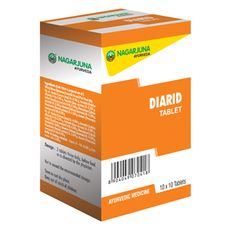 Where should we deliver your order?
Where should we deliver your order?How Controlling Blood Sugar, Benefits Your Heart

Controlling your blood sugar, along with maintaining good blood pressure and cholesterol levels, is one of the most important things you can do for your heart health. Many diabetic people, especially those with poorly managed diabetes, already have damaged blood vessels and are developing artery hardening, a risk factor for heart disease. Before the condition worsens to the point of a heart attack, people may not even be aware that they have diabetes. For this reason, it's crucial to keep track of your blood sugar levels besides your general body weight and fat.
If You Have High Blood Sugar -
The greatest strategy to reduce high blood sugar is to lose weight. Food provides energy, therefore if you don't burn off the calories you eat, fat will develop on your body, especially in your belly, which can lead to diabetes. There are two efficient methods for weight loss and diabetes prevention:
* Decreasing your sugar and carbohydrate intake.
* Doing cardio that causes quick, strained breathing
If you're just beginning to make diet and activity adjustments, consult your doctor to create a comprehensive plan that meets your specific needs. Make careful to follow recommendations and get your blood sugar levels checked.
If treatment is paired with weight reduction and lifestyle changes, type 2 (or adult-onset) diabetes can be controlled without the need for insulin. This is particularly valid for people with slightly high blood sugar levels. Excessively high glucose levels might be viewed as a danger sign.
Diabetes and Heart Disease-
For people who have diabetes, heart disease is the primary cause of death. In fact, people with diabetes are two to four times more likely to die from heart disease than those without diabetes. This is partly because high blood sugar levels can damage the heart muscle and increase the risk for a heart attack. Many people with diabetes aren’t even aware of the risks involved with their heart health. While the risk is there, the American Heart Association considered it a controllable risk factor. They advise that people who are diabetic treat their heart health as if they have already had a heart-related health event.
Also Read:
Statistics from the AHA:
* Your chance of dying from cardiovascular heart disease is two times higher if you have diabetes.
* In the US, an adult is hospitalized for heart disease every 80 seconds.
* An adult with diabetes is hospitalized for a stroke every two minutes.
* Cardiovascular disease and type 2 diabetes reduce a person's average life span by 12 years.
People with type 2 diabetes are believed to have an increased risk of cardiac problems due to their lifestyle choices, besides blood sugar difficulties. Cardiovascular disease and stroke risk is increased in people who are obese, inactive, and have uncontrolled high blood sugar or cholesterol levels.
Recommendations for Controlling Blood Sugar Levels -
So, How can you maintain control over your blood sugar levels? While there is no one solution that works for everyone, there are some basic advice that might be useful.
You can take the following steps to reduce your chance of developing heart disease and other significant health issues:
* You can help your body better control blood sugar levels by eating regular meals and snacks. You're less likely to have energy depressions or mood fluctuations when your blood sugar is stable. Moreover, you're less likely to overeat or eat bad meals.
* A balanced diet and frequent exercise are both important. Exercise lowers blood pressure and raises HDL cholesterol levels, both of which are beneficial to heart health. Exercise will maintain your circulation healthy and your blood flowing.
* Pick foods that are low in carbohydrates and sugar. Maintaining a balanced diet is crucial for heart health. Regularly consuming fiber-rich, low-sugar meals and snacks can lower your chance of developing heart disease. In addition to reducing cholesterol levels and supporting proper digestion, fiber also helps to maintain blood sugar stability. Consume a lot of whole grains, fruits, and veggies.
* Stick to water and avoid sugary beverages. Juices and sodas are high in sugar and low in other nutrients. These are useless calories that do nothing but raise your blood sugar levels.
* Monitoring your blood sugar levels will help you and your doctor determine if they are in the desirable range. A good blood sugar level is between 80 and 130 mg/dL before eating and one or two hours later.
Are you experiencing Diabetes issues and want an all-natural remedy? In aim to provide you the finest treatment possible, we have our Diabetes package to meet your specific requirements. Our skilled Ayurvedic practitioners will develop a special plan that takes into consideration your particular goals and needs. We offer the resources and knowledge to assist you in realizing your desire to start a healthy life, from herbal medicines and diet modifications to yoga exercises. Schedule your appointment right immediately to begin all along way to a healthier and more prosperous future.

 Herbal remedies
Herbal remediesIs Itchy and Dry Skin Treatment in Ayurveda Effective?
 Dr. Shivani NautiyalFeb 22, 2026
Dr. Shivani NautiyalFeb 22, 2026 Herbal remedies
Herbal remediesHome Remedies For Diabetes Treatment
 Dr. Shivani NautiyalFeb 23, 2026
Dr. Shivani NautiyalFeb 23, 2026 Diet and Lifestyle
Diet and LifestyleA Guide to Pregnancy Care Tips in Ayurveda for Pregnancy & Childbirth
 Dr. Shivani NautiyalFeb 23, 2026
Dr. Shivani NautiyalFeb 23, 2026




















 4
4






